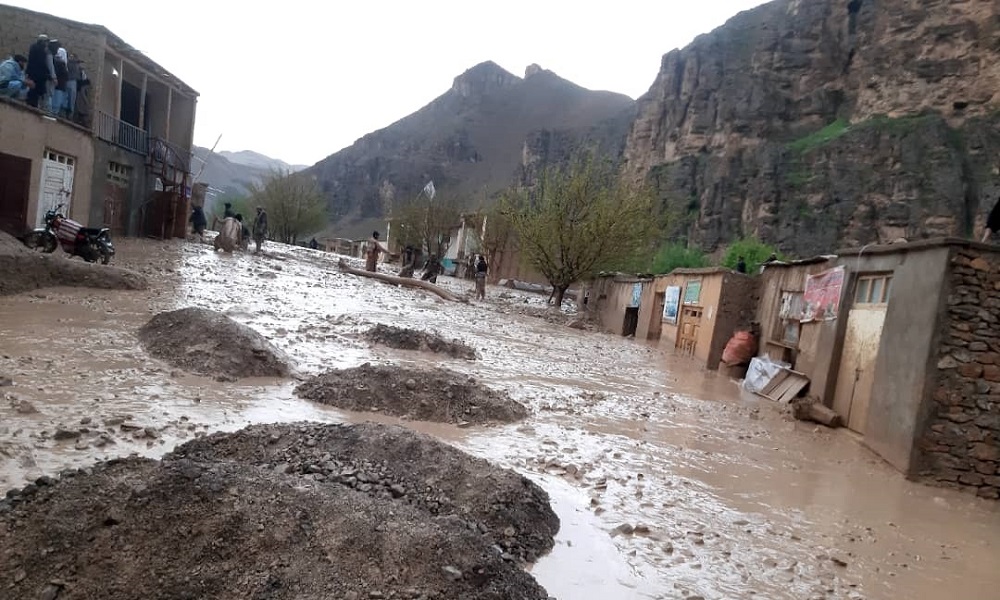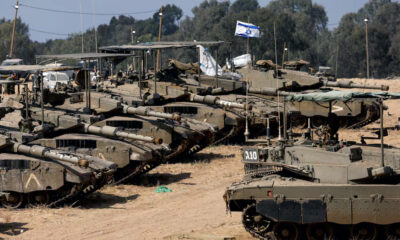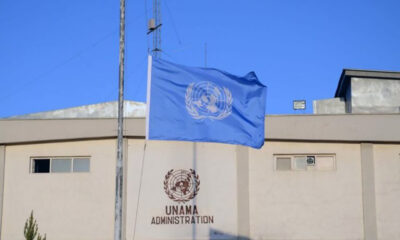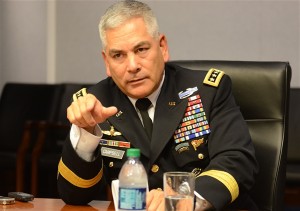Latest News
Afghanistan Won’t Be Able to Pay for its Military Until 2024: US Gen.

While the Afghan National Defense and Security Forces (ANDSF) have kept insurgents from achieving their strategic goals in 2015, their performance was uneven and several shortfalls will persist beyond 2016, the commander of U.S.-Forces Afghanistan, General John F. Campbell, said on February 2 in a testimony in front of the U.S. House of Representatives Armed Services Committee.
General Campbell, who also commands NATO’s Resolute Support Mission, noted that capability gaps persist in air power, combined arms operations, intelligence collection and dissemination, and maintenance. “One of the greatest tactical challenges for the Afghan security forces has been overcoming the Afghan air forces extremely limited organic close air support capability,” Campbell noted, while admitting that NATO has started to focus on building up Afghan airpower quite late.
As I reported previously (See: “Confirmed: First Four A-29 Light Attack Aircraft Arrive in Afghanistan”), after repeated delays, the first four out of 20 Embraer/Sierra Nevada Corporation A-29 Super Tucano light attack aircraft for service in the Afghan Air Force (AAF) arrived in Kabul in January 2016 .“The AAF is expecting an additional delivery of four more A-29 Super Tucano by the 2016 fighting season, with an additional four delivered in 2017. The remaining eight will be handed over to the AAF by the end of 2018,” I explained.
Campbell attributes 70 percent of the problems within ANDSF forces to poor senior leadership, but explained that the Afghan government is aware of the problem. “The Afghan National Army has replaced 92 general officers, including the 215 Corps commander in Helmand,” the general said. While noting that logistics and maintenance issues continue to plague the ANDSF, the general expressed also cautious optimism: “While these systems are far from perfect, the foundation has been laid.”
Yet, all of these changes take time, Campbell underlined. “Too many times we try to compare the Afghan security forces with the U.S. Army,” he said. “The U.S. Army has been around for 240 years.” He noted that building an army out of a collection of militias amidst an ongoing war is similar to “to building an airplane while in flight.”
The general emphasized that maintaining current U.S. troop levels “through most of 2016 was welcome and important. The decision set the example for NATO and other coalition allies and partners to maintain or increase their support to the Resolute Support mission.”
“Now more than ever, the United States should not waver on Afghanistan,” the general said. “The crucial investment we are making provides dividends that achieve our strategic goals, secure our homeland and position us well in the region — a region that has been a source of terrorism and instability for decades.”
The NATO coalition in Afghanistan currently spends around $5.1 billion on the ANDSF, with around $4.1 billion coming from U.S. taxpayer money. Campbell urged the United States and its allies to continue their current funding stream until at least 2020. He also noted that the Afghan government will not be able to start paying for the ANDSF “at least” until 2024.
“Ultimately, Afghanistan has not achieved an enduring level of security and stability that justifies a reduction in our support in 2016,” Campbell summarized. “Afghanistan is at an inflection point,” he stated. “I believe if we do not make deliberate, measured adjustments, 2016 is at risk of being no better, and possibly worse, than 2015.” He also was adamant that “a strategic stalemate without end is not the goal of this campaign.”
U.S. lawmakers appeared unimpressed. “How many $4.1 billion times are we going to do this before we can figure out that we can get out?” asked Representative Loretta Sanchez. “This has just got to come to an end,” said Representative Walter Jones. Since 2001, the United States has spent $64 billion on the ANDSF.

Latest News
IEA’s deputy PM invited to Russia to participate in an international meeting

Russian ambassador in Kabul, Dmitry Zhirnov, on Sunday invited the political deputy prime minister Mawlawi Abdul Kabir to participate in an international meeting that is expected to be held in Kazan city, Tatarstan.
According to a statement issued by the deputy PM’s office, in his meeting with the Russian ambassador, Kabir thanked him for the invitation to this meeting and said that relations between Russia and Afghanistan are important and friendly and Russian businessmen should invest in Afghanistan.
He added that relations between Moscow and Kabul benefit both sides and can help development and stability in the region.
According to the statement, the Russian envoy said that his country is ready to cooperate with Afghanistan in various fields and wants to expand bilateral relations.
He added that cooperation and increased interaction between the Islamic Emirate and Russia can contribute to stability and economic development in the region.
Latest News
Hundreds of families displaced due to floods in Ghor

The Directorate of Migration Affairs in Ghor says one person was killed, two were injured and more than 500 families displaced due to Saturday’s floods in two districts of the province.
The directorate added that floods occurred in Murghab and Chaharsada districts of Ghor, which affected more than ten villages in Marghab district and six villages in Chaharsada district.
According to the directorate, 55 shops, and 10 residential houses have been destroyed and the roads between the two districts are also blocked.
The directorate quoted Mir Ahmad Mosamem, the head of migrant affairs in Ghor, as saying that families from their original places are living in the open air in the mountains and are in urgent need of basic assistance.
According to him, the possibility of more losses is expected.
Latest News
Ban on opium cultivation in Afghanistan cost farmers $1.3 billion

The ban on opium cultivation precipitated a staggering $1.3 billion loss in farmers’ incomes, equivalent to approximately 8 percent of the country’s GDP, the World Bank said in a new report.
The bank said that over the past two fiscal years, the real GDP of Afghanistan contracted by 26 percent, and the country’s economic outlook remains uncertain, with the threat of stagnation looming large until at least 2025.
According to the report, structural deficiencies in the private sector and waning international support for essential services are anticipated to impede any semblance of economic progress.
Half of Afghanistan’s population lives in poverty and 15 million people face food insecurity, it noted.
“Afghanistan’s long-term growth prospects depend on a significant shift from its previous reliance on consumption-driven growth and international aid to a more resilient, private sector-led economy that capitalizes on the country’s strengths,” said Melinda Good, World Bank Country Director for Afghanistan.
“For a sustainable future, Afghanistan needs to address harmful gender policies, invest in health and education, and focus on the comparative advantages it has in the agricultural and extractive sectors.”
The World Bank pointed out that the increase in Afghanistan’s trade deficit is another challenge for the country’s economy. According to the bank’s report, in 2023, Afghanistan’s imports increased by 23% and reached $7.8 billion.
-

 Sport5 days ago
Sport5 days agoAfghanistan announce T20 World Cup 2024 squad
-

 Sport4 days ago
Sport4 days agoNew Zealand to go ahead with Afghanistan cricket Test
-

 Latest News4 days ago
Latest News4 days agoWorld Bank donates $84 million to Afghanistan
-

 Regional5 days ago
Regional5 days agoIsrael will enter Rafah with or without Gaza hostage deal, Netanyahu says
-

 Latest News4 days ago
Latest News4 days agoWork permits issued to over 2,000, including women: Labor Ministry
-

 Sport4 days ago
Sport4 days agoAll-round Stoinis helps Lucknow beat Mumbai in IPL
-

 Sport3 days ago
Sport3 days agoSorkh Poshan Khafi and Khadim FC winners in their ACL matches
-

 Latest News3 days ago
Latest News3 days agoUNAMA issues latest rights report, notes ongoing challenges for women, girls and media















